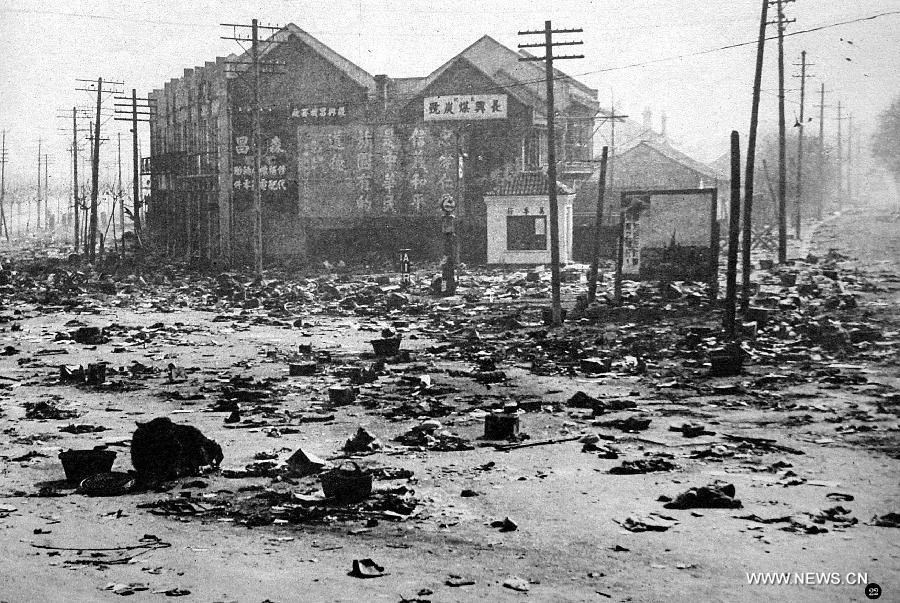It may have been almost 80 years ago, but Weifoung Yuan still remembers well the events of the Second World War and the Japanese invasion of China.
In fact, the day the factory where he worked was bombed by the Japanese army will be forever etched in his mind.
The explosion was devastating and he and other colleagues were on the run, trying to make their way from the suburb where the factory was to downtown Shanghai.
Their destination was a British concession where they hoped to find shelter. But it was a perilous journey. Japanese aircraft menaced the skies above and bodies were strewn along the way.
“We were running for our lives,” Yuan recalled.
As they moved forward, they listened carefully for the planes of the Japanese army.
“We curled up and hid when we heard they were getting closer, then ran fast when they flew away,” said Yuan.
“Hide, run; hide, run...repeated like that.”
He had to throw away his suitcase as it was slowing him down.
“We were lucky, we didn’t get bombed,” said Yuan.
Today, Yuan, 98, is best known in Richmond as the founder of the Richmond Wellness Club.
The club runs an exercise program for hundres of people in Richmond Centre everyday at 8 a.m. before the mall opens.
However, it doesn’t take much to evoke memories of war, even though Yuan never joined the Chinese army.
“My company knew the Japanese armies were coming so had already applied for the permit for all its employees to enter the British concession,” said Yuan.
Thousands of people, who didn’t have a permit, were staying right outside of the gate — close to the British concession so they wouldn’t get bombed, Yuan recalled.
Having lost everything on the way there, he received money to purchase basic necessities from his company and stayed in the concession, waiting for the factory to reopen.
“We went to the office in the concession for food every day, but we didn’t have any work. I could hear gun shots and see explosions at night near the river from the top of the building,” Yuan recalled.
The factory never did reopen. After less than a year, Yuan was sent back to his hometown — a small town in the province next to Shanghai, but the fighting continued there.
“There were Chinese and Japanese soldiers fighting in my hometown, too,” said Yuan.
He and his family ran away from their home when they heard the Japanese getting closer, but would then return after they left.
Some villagers that were helping the Chinese soldiers would dig holes on the road to overturn Japanese trucks as they passed over or cut bridges to stop them.
“This made the Japanese very angry, but they couldn’t find Chinese soldiers to retaliate, so they burned the houses of the farmers on the side of the road.”
“Everyone was afraid. We heard gun shots all the time, mostly during the night. We would then stay awake the whole night.”
Some villagers would give the Chinese guerrillas food and clothes, who fought in very poor conditions.
“When we heard a rustling sound at night, we knew the Chinese armies were there.Afterwards, we would hear gunshots.”
In 1940, a pseudo-government was formed under the power of Japan, and the Shanghai area was granted temporary peace.
Yuan then left his village to go to a school in Shanghai and become a worker in a factory in Wuxi, Jiangsu. He worked there until Japan’s surrender in 1945, then returned to Shanghai to work in a factory, before moving to Hong Kong with his company in 1948. At age 63, he moved to Richmond.
Looking back, the experiences he has had makes him especially appreciative of the peace he now enjoys.
“I like Canada. It is a country that loves peace. There is no hatred here, and it doesn’t have enemies. It’s very peaceful and stable,” he said.



